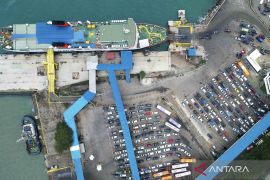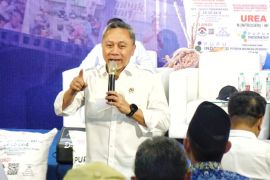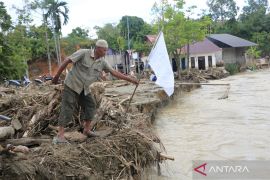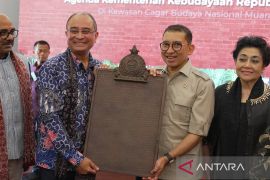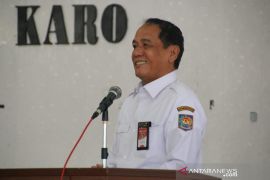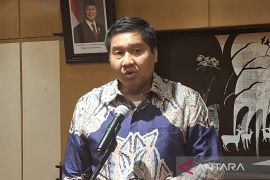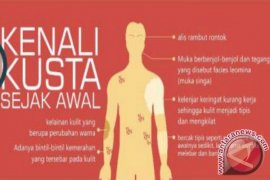"We have to continue to do it, and I think we have state-owned companies and private ones. Ten state companies and private firms are working on bringing down prices. Prices will surely come down," Jokowi said Tuesday.
The beef price target is set at Rp80 thousand per kilogram (kg), and it has been calculated carefully by taking into account the prices in other countries, the president said.
The price of beef in other countries could reach Rp55 thousand to Rp60 thousand per kg, the head of state explained.
"But it is being reported that state companies and private firms sell it now at Rp70 thousand - Rp80 thousand," Jokowi said.
The government is now importing beef to meet the needs and prevent scarcity at home.
"If we do not import, people could slaughter good heifers because of the high prices. This is a danger that should be prevented," Jokowi explained.
Earlier, Jokowi inspected the cattle feedlot business of PT Karya Anugrah Rumpin (KAR) in Rimpin village, Bogor District, West Java, aimed to develop pedigree and to achieve beef self reliance.
The government hopes it would be able to complete its high-bred cow project in the coming 9 to 10 months where good heifers could be selected to be supplied to the downstream cattle farming businesses, according to the president.
Meanwhile, about 8,110 tons of beef imported for catering services, hotels and restaurants were diverted to consumers in an effort to stabilize the beef prices in the current fasting month and post-fasting festivities, or Lebaran, Agriculture Minister Arman Sulaiman said Monday.
"The 8,110 tons of beef brought by 10 importers are equal to 47 thousand heads of cattle and will be released into the market in the coming two weeks. The operations commenced last Thursday," Agriculture Minister Amran Sulaiman told a press conference Monday.
The minister called the press conference to explain the governments evaluation on the smoothness of its beef imports to stabilize prices during the fasting month and Lebaran.
Importers were instructed to allocate their beef to consumers in order to bring down soaring beef prices in the market, Amran said.
To compensate the importers for the 8,110 tons of beef that was allocated to consumers, the government will replace them with a recommendation for them to import another one.
Agriculture Ministerial Decree No. 139/2014 on Carcass, Meat and Processed Meat regulates that imported meat for industrial need may not be sold to the market.
"This is at the discretion of the government. We will replace the beef that is diverted to the public with immediate recommended meat imports," he said.
The price of beef sold in the market will be below the governments target of Rp80 thousand per kilo gram (kg), Amran assured.
"It is frozen meat but it is of good quality. It will be sold at between Rp70 thousand and Rp77 thousand per kg," he said.
Importers will profit even though the beef is sold at a lower price, he said.
The beef is sold through market operations massively assisted by the Indonesia Farmers Shop (TTI) organization, state-owned PT Berdikari Company and a number of cooperatives. The market operations will take place across the country, with the main focus in the Jabodetabek (Jakarta and its buffer towns of Bogor, Depok, Tangerang and Bakasi) areas.
The 10 importers who are involved in the market operations to distribute the imported beef are Artha Graha Peduli, PT Agro Boga Utama, PT Indoguna Utama, and PT Estetika Tata Tiara, in addition to PT Bumi Maestro Ayu, PT Suri Nusantara Jaya, PT Anzindo Gratia Nasional, and PT Berkat Mandiri Prima. PT Bina Mentari Tunggal and PT Rita Jaya Beef, make up the ten.(*)
Editor: Heru Purwanto
Copyright © ANTARA 2016
